In connection with the annual celebration in September each year, Aarhus University Anniversary Foundation awards the Teaching Prize.
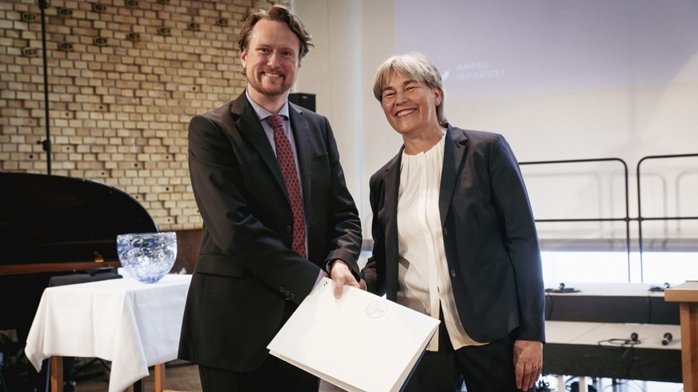
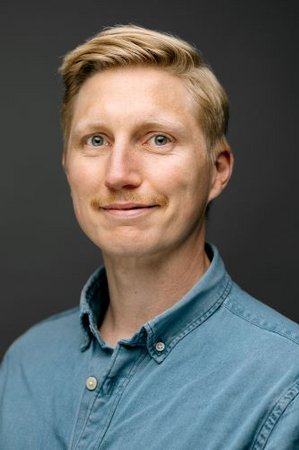
Associate Professor Mikkel Bennedsen teaches methodological courses in mathematics and statistics. He uses his own daily life and socially relevant issues actively in his teaching, for which students rate him highly in teaching evaluations.
Mikkel Bennedsen wants to make the transition from upper secondary school to university easier for students, and he has been in close contact with upper secondary school teachers to better understand the foundation that students bring with them to university. He is planning to follow along in upper secondary teaching and has also invited teachers to follow along in his lectures.
Read more about Mikkel Benedsen in this article: He uses his own life to make maths and statistics fun.
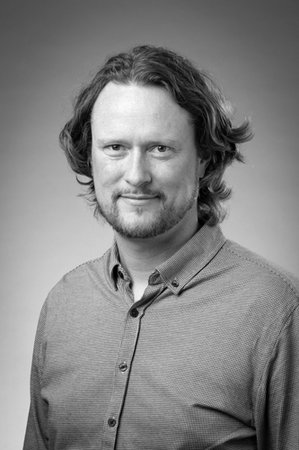
Professor Steffen Petersen from the Department of Civil and Architectural Engineering receives the Anniversary Foundation Teaching Prize 2023 for his excellent efforts to teaching students about construction, energy and indoor climate. He has dedicated his research to identifying how we can reduce the construction industry’s wear and tear on the Earth's ecosystems and create a healthier indoor climate. His list of publications is long, and Steffen Petersen’s research is frequently cited. He does not shy away from joining public debate and has a passion for sharing his knowledge with students.
Steffen Petersen has also headed the development of new Bachelor's and Master's degree programmes in civil, structural and architectural engineering at Aarhus University, and his teaching is based on his ambition to create change in the construction sector. Not only does Steffen provide his students with a strong theoretical basis on which they can base their future work as building engineers, he also teaches them to think critically, consider things from different perspectives and question existing practices.
Steffen is known as an enthusiastic and humorous teacher who can facilitate both theoretical and application-oriented teaching and collaboration. This affects his students’ motivation and engagement, and is reflected in student projects of extraordinarily high quality each semester.
Read the article: Lecturer of the Year: I introduce my students to a broader agenda
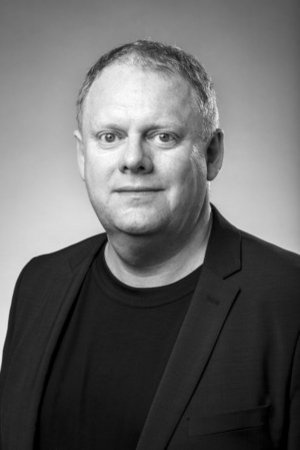
Gerth Stølting Brodal researches the design and analysis of algorithms and data structures, mainly in relation to massive data algorithms – in other words, getting computers to create overviews of and retrieve useful information from huge amounts of data.
His other priority is giving his students the necessary overview to make computers create useful information on their own. Including students from completely different subjects.
In fact, many of his students don’t come from his own department. Or faculty, for that matter. A lot of them come from Arts.
Arts?
Yes, because several prospective upper secondary school teachers from Arts have mathematics as a supplementary subject, and mathematics students make up a large part of the target audience for Gerth Stølting Brodal’s course ‘Introduction to Programming with Scientific Applications’ – a course he developed from scratch.
“The upper secondary school teachers of the future are important because they are going to educate our children. Students who study mathematics as their elective are typically more academically challenged by the ways of thinking in the course than those who have mathematics as their core subject, so it’s important for me to ensure their academic outcome. I really try to do that – especially at the study café, where I talk to a lot of students. I’m motivated by connecting with the students, by challenging them and seeing how they improve academically,” says Gerth Stølting Brodal.
His course also attracts students from other departments at the Faculty of Natural Sciences, and Gerth Stølting Brodal appeals to their different competences by including assignments in his teaching that deal with relevant issues from areas like chemistry and data science.
He has won the prize for Lecturer of the Year three times at the Department of Computer Science and he has also won a competition organized by the student organisation TÅGEKAMMERET three times, ironically entitled ‘The World’s Most Boring Lecture’.
Gerth Stølting Brodal’s popularity as a teacher is also due to his lectures being both entertaining and structured, so the students get an overview of and access to all the resources they need at the beginning of the semester on Brightspace.
At least these are some of the things that one of his former students from the School of Communication and Culture, Pernille Brams, praises him for in particular.
Admittedly, Pernille Brams is not going to become an upper secondary school teacher. She studies cognitive science with mathematics as an elective and has already got a foot in the door at a large software company.
“Gerth was the first teacher to upload the timetable, way before the beginning of the semester. And with a super-structured layout. Lectures, assignments and all resources we might need were just there. Exam papers from previous years were available right from the beginning,” says Pernille Brams.
She adds that Gerth Stølting Brodal uploaded all of his lectures during the Covid-19 lockdown – and has continued to do so, which makes following the course more flexible for students.
“And then he’s just talented at teaching. He has an agenda when he comes to the lecture and he shares his knowledge in an entertaining and enthusiastic way,” she says.
For a number of years, Gerth Stølting Brodal has been the chair of the Committee on Education at the Department of Computer Science and has been a strong driving force in improving education and reducing the dropout rate among the department’s students.
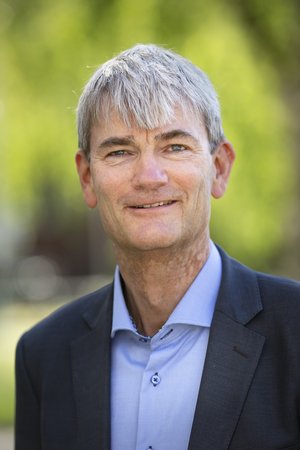
Lars Bo Gundersen, an associate professor of philosophy at the Department of Philosophy and History of Ideas, is acutely aware that many students of logic find the subject both difficult and a bit dry. Put simply, logic, a branch of philosophy that was first formalised by Aristotle, is the study of reasoning, particularly as it involves drawing inferences. When you study logic, you learn to apply the so-called three laws of thought - the law of excluded middle, the law of noncontradiction and the law of identity- to evaluate the validity of arguments. When asked how he felt about logic when he first encountered it as a university student, Gundersen said: “I loved it. But I couldn’t figure it out at first.”
But ultimately, Gundersen did figure it out – and he has had enormous success in passing on his love of logic to new generations of students. In fact, the subject has become extremely popular, to a large degree due to his ability to inspire and motivate his students. Examples of Gundersen’s innovative approach to teaching include animated lecture notes in the form of fourteen short videos, as well as an innovative logic learning app that provides students with feedback on logic assignments. Most recently, he has received a grant for a project to develop software to support digital assessment and automated formative feedback in connection with logic and argumentation theory classes.
“I’m deeply fascinated by the potential of digitisation in terms of developing teaching tools. Not least in relation to individually tailored and automated formative feedback. But there are serious dangers associated with the potential of digitisation. For example, there’s a widespread misconception that digitisation can replace in-person teaching, either completely or in part. But digitisation is precisely a teaching tool - not a substitute for teaching,” explained Gundersen.
An intellectually generous educator and colleague
Gundersen is widely acknowledged as a world-class scholar who also involves his students in the practice of philosophy and makes space for their contributions and academic development in his own projects. For example, he has invited students to participate in writing academic articles, and he has co-authored articles with students.
According to his colleagues, Gundersen’s approach to his teaching is similarly generous. And the same applies to his attitude to knowledge-sharing with colleagues; his willingness to share his expertise and experience is legendary.
Focus on the real world
Gundersen is also known for his emphasis on inviting the real world into his teaching practice. He has had great success with inviting business leaders into the lecture hall, which also helps pave the way for student internships. He often bases his classes on current debates in the media, and he attempts to hone his students’ critical thinking and ability to detect ‘fake news’ in the media, for example by giving them assignments on faulty logic in news articles.
When asked how he felt about being this year’s winner of the Aarhus University Anniversary Foundation Prize of Honour for Pedagogics, Gundersen’s responded with modesty:
“Of course, recognition is always nice. But I also feel a certain amount of humility about receiving this honour. There are a lot of educators here at the university who are (at least) as good at teaching and developing teaching tools as I am. And to a high degree, any success that I have as an educator is also the students’ due.”